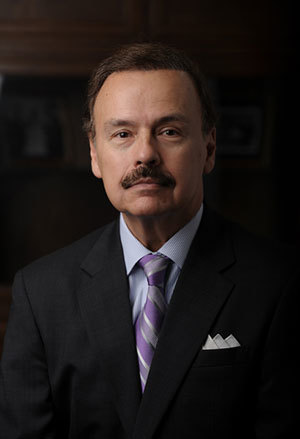
University of Notre Dame law professor Jimmy Gurulé, a terrorist financing expert, testified before the U.S. House Financial Services Committee Thursday (Nov. 13) on the principal sources of Islamic State funding. Gurulé, who also is a former assistant U.S. attorney general and former undersecretary for enforcement for the U.S. Treasury Department, also offered recommendations for enhancing the response by the U.S. Treasury Department and the Department of Justice to the Islamic State threat.
Gurulé told the committee that Islamic State, commonly known as ISIS, has up to $1 billion in its reserve and is “the wealthiest terror organization that the world has ever known.”
The terrorist group’s major source of income is the oil it extracts in the areas it has seized.
“The low number of Treasury Department designations of ISIS-related individuals for asset freeze, as well as the dearth of terrorist financing prosecutions by the Department of Justice, are deeply troubling,” Gurulé said in his testimony. “To effectively disrupt the financing of ISIS, the Treasury Department needs to recalibrate and intensify its counter-terrorist financing efforts, focusing on individuals and entities involved in the principal sources of ISIS funding, such as the illicit oil trade. The Treasury Department should work more closely with the DOJ in sharing financial intelligence information to increase the number of successful terrorist financing prosecutions. Treasury should also make more effective use of its civil enforcement actions under the BSA (Bank Secrecy Act) to ensure that banks are not being used for terrorist financing purposes.
“Collectively, these proposals will enhance the effectiveness of the U.S. government’s efforts to deprive ISIS of funding to commit terrorist attacks.”
Gurulé also appeared on Jake Tapper’s CNN show Thursday to discuss reports that ISIS is minting its own currency. He noted that ISIS has up to $1 billion in reserves.
“With that kind of money, it’s hard to understand, what’s the potential?” Gurulé said. “What could they do with that? So certainly it’s a possibility. The difficulty with that kind of money is you can’t just put that money in shoeboxes and place it under your mattress. It has to enter into the financial system at some point in time. I think the Treasury needs to be focusing on banks, banks in Qatar, for example, and in Kuwait that may be the recipients and handling money for ISIS.”
Gurulé is an expert in complex criminal litigation, but his teaching and scholarship also concern criminal law, criminal and scientific evidence, and international criminal law. He has written and lectured on the problem of organized crime and has traveled extensively in eastern Europe to investigate and discuss the problems of organized crime in the countries of the former Soviet Union. He also helped train 20 Iraqi judges who presided over the trials of Saddam Hussein and other members of the overthrown Ba’athist government.
Contact: Jimmy Gurulé, 269-240-0031, gurule.1@nd.edu
Originally published by at news.nd.edu on November 14, 2014.